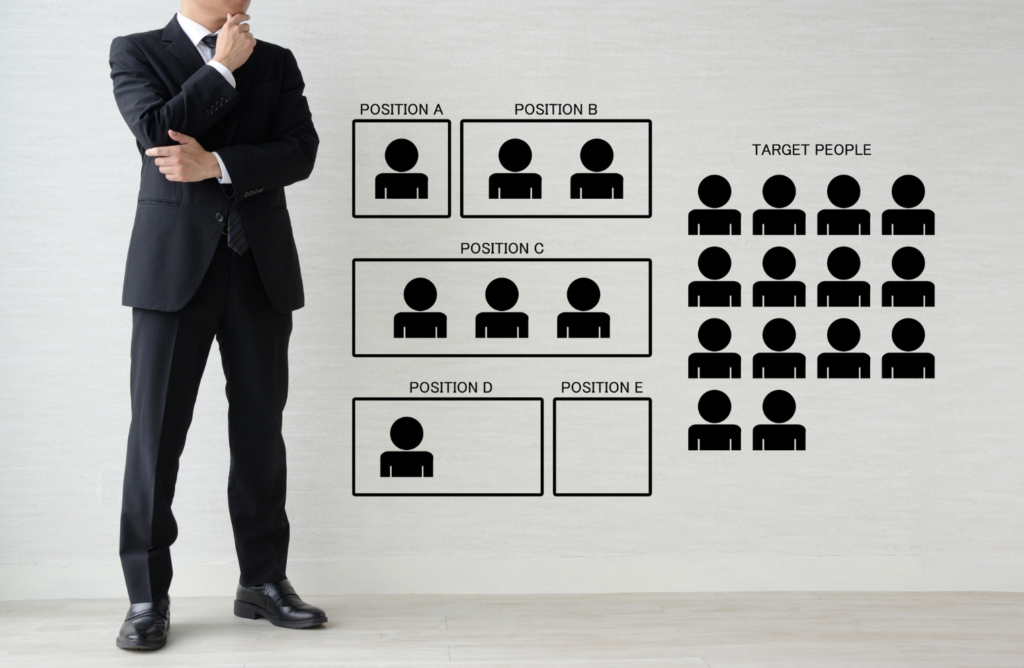
Are there penalties for employers or private plan insurance carriers/administrators that do not comply with state paid family and medical leave (PFML) laws? Now that PFML programs are aging, states could start to focus on enforcement instead of just implementation, and employers must be ready. While not as long as a game of Monopoly™, this article includes a few examples of PFML penalties to prepare employers for this real-life game in states with PFML laws or insurance options.*
Penalties at Play
PFML penalties aren’t as simple as landing on Chance and suffering the Go to Jail card. Massachusetts representatives noted that they would begin auditing employers in 2024 and issuing penalties for failure to meet notice requirements. Connecticut updated its PFML program in 2024 to allow penalties for private plan violations rather than just terminating a plan, which is still an option. Maine has started penalties for failing to submit wage reports and contributions.
There is wide variation in the penalties that can be levied — fines per violation of the PFML programs can range from $50 to $5,000. While there is no PFML jail, New York1 has a provision designating false statements to obtain benefits as a misdemeanor, and Minnesota2 declares it a crime for employers to avoid or reduce required payments.
Some of the employer/carrier/administrator penalty provisions of PFML programs are triggered by failure to comply with notice requirements, contributions, wage reporting, benefits payments, recordkeeping, private plans, and violations of job-protection rights.
State Examples
In Delaware, PFML penalties are grouped into one section of the law, which stipulates that any program violations are subject to a civil penalty of $1,000 to $5,000.3 Delaware interprets each violation as alleged actions against each employee.4 Maryland has a similar general section stating that employers and insurers that violate the law may be subject to a civil penalty of up to $1,000 per employee.5
Connecticut published its efforts to recover unpaid contributions in June, which included recovering $1,439,966 in penalties from 12,321 unique employers.
Notice
Some states can levy fines when an employer fails to provide PFML notices to employees. These are actions employers should watch for by state:
- Colorado imposes a fine for failure to provide and post these notices. Fines can be up to $500 for each day.6
- Massachusetts and Minnesota both levy a civil penalty of $50 per employee for the first violation and $300 per employee for each subsequent violation.7, 8
- In Washington, the penalty is up to $100 for each separate offense.9
Contributions
Employers may also be penalized for failure to pay plan contributions or to pay them electronically:
- In Colorado, employers failing to submit premiums to the state can be fined up to $50 per individual whose premiums were paid late; up to $25 per employee per instance of excessive contribution deductions; and up to $50 per employee per day the employer fails to reimburse contributions to employees.10
- In Connecticut, the penalty is up to 10% of the contribution amount owed to an employee and can include interest.11 Connecticut published its efforts to recover unpaid contributions in June 2025, which included recovering $1,439,966 in penalties from 12,321 unique employers.12
- Maryland can impose a penalty that does not exceed two times the contributions withheld.13
- An employer that fails to submit contributions in Massachusetts could face a fine equal to its total annual payroll for employees for each year or fraction thereof that the employer failed to comply, multiplied by the current annual contribution rate plus the total amounts of benefits paid to employees for whom it failed to make contributions.14
- An Oregon employer that defaults on contributions could be subject to a penalty of 10% of the contribution.15 If an Oregon employer fails to pay all contributions due in a year, it could be charged 1% of the wages of its employees in the preceding calendar year.16
- The fine for failing to pay in Washington is equal to the premiums owed plus interest.17
Wage Reporting
Employers in states that require wage reporting can be penalized for failing to submit those reports:
- Colorado imposes a fine of up to $50 per employee whose wages were not reported.18
- Employers in Minnesota must pay a late fee of $10 per employee, and the fee cannot be less than $250. If the wage report is filed in a timely manner but has missing or erroneous information, the state may assess an administrative service fee of $25 for each employee that has missing or erroneous information. The state may also charge an administrative service fee equal to 2% of the total wages for each employee who is missing from the report.19
- An Oregon employer that fails to submit quarterly wage reports shall be assessed 0.02% of wages for the employer’s employees rounded to the nearest $100. Penalties from $10 to $100 may be assessed for employers with no employees.20 And an Oregon employer that fails to file all required reports will pay a penalty equal to 1% of the wages of the employer’s employees in the preceding calendar year.21
- In Washington, the penalty for failing to provide wage reports on the second occurrence is $75, $150 for the third occurrence, and $250 for the fourth and subsequent occurrences.22
Benefits Payments
It’s not surprising that failure to pay PFML benefits would result in fines. In Colorado, an insurer or private plan administrator could be fined up to $100 for the first date of nonpayment per individual, an amount that can increase by $100 each day thereafter.23
Willful actions, which result in employees receiving benefits they are not entitled to, could also result in penalties:
- In Connecticut, an employer could be liable for 50% of the benefits paid in error.24
- Maryland imposes a civil penalty of up to $1,000 for each occurrence.25
- There are several options in Minnesota. The penalty could be $500, the amount of benefits that were overpaid, or 50% of the overpaid benefits; the amount of benefits not paid that would have been paid; or the amount of any payment from the employer which wasn’t paid.26
- Oregon may assess a civil penalty up to $1,000 against an employer for each occurrence.27
Most PFML laws include provisions regarding how PFML benefits coordinate with other types of benefits such as FMLA and short-term disability policies. Employers that do this improperly in Colorado could be fined up to $500 per violation.28
Recordkeeping
Employers must keep PFML records confidential or face fines, as outlined below:
- Failure to do so in Colorado could cost an employer up to $500 per violation.29 Colorado will also levy a fine up to $250 per violation for failure to provide records in a timely fashion to employees who request them.30 Employers may also be fined up to $250 per employee per day for failure to provide any information the state requests.31
- A Minnesota employer that refuses to provide records to the state may receive an administrative penalty of $500. The penalty for failure to provide a breakdown of money earned by an applicant is $100.32
- In Washington, misuse or unauthorized release of records or information deemed private and confidential may be subject to a civil penalty. In 2018, that was $20,000 and the state planned to adjust it annually based on changes in the U.S. Consumer Price Index.33
Employment Protections
Employers in Colorado that violate the employment protections provisions (e.g., no retaliation, no interference, job reinstatement) are subject to a $500 fine per violation and other remedies.34 In Delaware, such violations are subject to a civil penalty of not less than $1,000 nor more than $5,000 for each violation plus other remedies.35 Minnesota has a penalty of not less than $1,000 and not more than $10,000 per violation, payable to the employee aggrieved.36
Private Plans
There are potential fines for private plan employers and carriers based on violations of private plan rules. For example, Colorado employers and entities that violate the private plan rules can be subject to a fine of $500 per violation.37 Employers that fail to notify the state of changes to the terms of the private plan are subject to a fine up to $250, and employers that fail to notify employees could be fined up to $100 per employee per day.38 Employers could also be fined if they fail to continue private plan coverage through the date of withdrawing the plan.39 Finally, employers could be fined up to $100 per employee per day if they fail to comply with private plan termination procedures.40
Connecticut also has a penalty for private plans that mistakenly pay contributions to the state when they are exempt from contributions. On the third instance where Connecticut must refund contributions to the private plan, there is a $50 penalty; on the fourth instance, $100; and after that, the penalty is equal to the greater of $100 or 1% of the refunded amount.41
Failure to notify Connecticut of the termination of a private plan could result in a penalty up to an amount equal to the first full calendar quarter of contributions that its employees must pay to the state.42 If a private plan voluntarily terminates before the end of the effective date of the plan, there is a penalty equal to 300% of the first full calendar quarter of contributions that the employees must pay.
Connecticut can involuntarily terminate private plans for a variety of reasons, including:43
- Failure to pay benefits or pay them timely;
- Failure to maintain an adequate security deposit;
- Misuse of private plan funds; and
- Failure to submit reports.
If Connecticut terminates a plan, it may assess a penalty up to an amount equal to 400% of the cost of the first full calendar quarter of contributions the employer’s employees must pay following the termination of the private plan.44
Moving beyond Connecticut, employers in Massachusetts that fail to maintain or renew their private plan, or the state withdraws the private plan may receive a penalty up to its total annual payroll each year or fraction thereof that it failed to maintain the plan multiplied by the then-current annual contribution rate. The employer will also be required to pay the state back the total amount of benefits paid to covered individuals who received benefits from the state.45
In Minnesota, Oregon, and Washington, violations of the private plan provisions may result in a penalty of $1,000 for the first violation and $2,000 for the second and successive violations. However, voluntary termination of a Minnesota private plan before the effective date will result in a fine per employee per day the employee was not covered through the termination’s effective date. The fine per employee per day will equal the employer’s and employee’s total premium amount for a year divided by 365.46, 47, 48
While the chances of criminal PFML violations would be far less than the chance of a Go to Jail card in Monopoly, employers should be wary of any violations because fines aren’t paid with Monopoly money!
* This article does not address California, District of Columbia, Hawaii, New Jersey, New York, or Rhode Island.
References
- N.Y. Workers’ comp. Law § 220(3). Retrieved from https://www.nysenate.gov/legislation/laws/WKC/220
- M.S.A. § 268B.185, Subsec. 3. Retrieved from https://www.revisor.mn.gov/statutes/2024/cite/268B.185
- 19 Del.C. § 3719. Retrieved from https://laborfiles.delaware.gov/main/pfl/Healthy_Delaware_Families_Act.pdf
- 19 Del. Admin. Code 1401-21.0. Retrieved from https://regulations.delaware.gov/AdminCode/title19/1401
- MD LABOR & EMPLY § 8.3-905. Retrieved from https://mgaleg.maryland.gov/mgawebsite/Laws/StatuteText?article=gle§ion=8.3-101&enactments=false
- 7 CCR 1107-3:3.7.5; 1107-5, 7 CCR 1107-5:5.9.5. Retrieved from https://www.sos.state.co.us/CCR/NumericalCCRDocList.do?deptID=10&agencyID=208
- M.G.L.A. 175M § 4. Retrieved from https://malegislature.gov/Laws/GeneralLaws/PartI/TitleXXII/Chapter175M
- M.S.A. § 268B.26. Retrieved from https://www.revisor.mn.gov/statutes/cite/268B/full
- RCWA § 50A.20.020. Retrieved from https://app.leg.wa.gov/rcw/default.aspx?cite=50A
- 7 CCR 1107-1:1.4. Retrieved from https://www.sos.state.co.us/CCR/NumericalCCRDocList.do?deptID=10&agencyID=208
- Connecticut Paid Leave. CTPL-008-PNLT(c). Retrieved from https://www.ctpaidleave.org/-/media/ctpl/english-pdfs-and-docs/consolidated-policies-document—final-12092022.pdf?rev=ba8fb06970f3494b97e820bc45fbb2b3
- Connecticut Paid Leave. Retrieved from https://www.ctpaidleave.org/-/media/ctpl/pages/meetings-and-agendas/board-of-directors/june-bod-2025/06122025-bod-fund-recovery.pdf?rev=0fda892f28f44ce0b9a134207332500b
- MD LABOR & EMPLY § 8.3-903. Retrieved from https://mgaleg.maryland.gov/mgawebsite/Laws/StatuteText?article=gle§ion=8.3-101&enactments=false
- 458 C.M.R. § 2.05. Retrieved from https://www.mass.gov/doc/458-cmr-2-family-and-medical-leave/download
- O.R.S. § 657B.320. Retrieved from https://oregon.public.law/statutes/ors_chapter_657B
- O.R.S. § 657B.910. Retrieved from https://oregon.public.law/statutes/ors_chapter_657B
- RCWA § 50A.45.010. Retrieved from https://app.leg.wa.gov/rcw/default.aspx?cite=50A
- 7 CCR 1107-3:3.3.2. Retrieved from https://www.sos.state.co.us/CCR/NumericalCCRDocList.do?deptID=10&agencyID=208
- M.S.A. § 268B.12. Retrieved from https://www.revisor.mn.gov/statutes/cite/268B/full
- O.R.S. § 657B.920. Retrieved from https://oregon.public.law/statutes/ors_chapter_657B
- O.R.S. § 657B.910. Retrieved from https://oregon.public.law/statutes/ors_chapter_657B
- RCWA § 50A.45.010. Retrieved from https://app.leg.wa.gov/rcw/default.aspx?cite=50A
- 7 CCR 1107-5:5.2.1. Retrieved from https://www.sos.state.co.us/CCR/NumericalCCRDocList.do?deptID=10&agencyID=208
- Conn. Gen. Stat. §31-49r (b), (d). Retrieved from https://www.cga.ct.gov/current/pub/chap_557.htm#TOC
- MD LABOR & EMPLY § 8.3-901. Retrieved from https://mgaleg.maryland.gov/mgawebsite/Laws/StatuteText?article=gle§ion=8.3-101&enactments=false
- M.S.A. § 268B.19. Retrieved from https://www.revisor.mn.gov/statutes/cite/268B/full
- O.R.S. § 657B.332. Retrieved from https://oregon.public.law/statutes/ors_chapter_657B
- 7 CCR 1107-4:4.7.3. Retrieved from https://www.sos.state.co.us/CCR/NumericalCCRDocList.do?deptID=10&agencyID=208
- 7 CCR 1107-3:3.8.10. Retrieved from https://www.sos.state.co.us/CCR/NumericalCCRDocList.do?deptID=10&agencyID=208
- 7 CCR 1107-5:5.3.9. Retrieved from https://www.sos.state.co.us/CCR/NumericalCCRDocList.do?deptID=10&agencyID=208
- 7 CCR 1107-5:5.18.5. Retrieved from https://www.sos.state.co.us/CCR/NumericalCCRDocList.do?deptID=10&agencyID=208
- M.S.A. § 268B.21. Retrieved from https://www.revisor.mn.gov/statutes/cite/268B/full
- RCWA § 50A.25.120. Retrieved from https://app.leg.wa.gov/rcw/default.aspx?cite=50A
- C.R.S. § 8-13.3-509. Retrieved from https://colorado.public.law/statutes/crs_8-13.3-509#:~:text=Any%20covered%20individual%20who%20has%20been%20employed%20with,pay%20and%20other%20terms%20and%20conditions%20of%20employment.
- 19 Del.C. § 3719. Retrieved from https://laborfiles.delaware.gov/main/pfl/Healthy_Delaware_Families_Act.pdf
- M.S.A. § 268B.09. Retrieved from https://www.revisor.mn.gov/statutes/cite/268B/full
- C.R.S. § 8-13.3-521. Retrieved from https://colorado.public.law/statutes/crs_8-13.3-509#:~:text=Any%20covered%20individual%20who%20has%20been%20employed%20with,pay%20and%20other%20terms%20and%20conditions%20of%20employment.
- 7 CCR 1107-5:5.13.7. Retrieved from https://www.sos.state.co.us/CCR/NumericalCCRDocList.do?deptID=10&agencyID=208
- 7 CCR 1107-5:5.14.3. Retrieved from https://www.sos.state.co.us/CCR/NumericalCCRDocList.do?deptID=10&agencyID=208
- 7 CCR 1107-5:5.17.4. Retrieved from https://www.sos.state.co.us/CCR/NumericalCCRDocList.do?deptID=10&agencyID=208
- Private Plan Policies and Procedures §V. Retrieved from https://www.ctpaidleave.org/-/media/ctpl/pages/private-plans/final–ct-pfml-policy–procedures-10122023.pdf?rev=5ae94d0493114d99b87ebdb5b9a54d0b
- Private Plan Policies and Procedures §IX. Retrieved from https://www.ctpaidleave.org/-/media/ctpl/pages/private-plans/final–ct-pfml-policy–procedures-10122023.pdf?rev=5ae94d0493114d99b87ebdb5b9a54d0b
- Conn. Gen. Stat. §31-49o(b). Retrieved from https://www.cga.ct.gov/current/pub/chap_557.htm#sec_31-49o
- Private Plan Policies and Procedures §IX. Retrieved from https://www.ctpaidleave.org/-/media/ctpl/pages/private-plans/final–ct-pfml-policy–procedures-10122023.pdf?rev=5ae94d0493114d99b87ebdb5b9a54d0b
- 458 C.M.R. § 2.07. Retrieved from https://www.mass.gov/doc/458-cmr-2-family-and-medical-leave/download
- M.S.A. § 268B.10. Retrieved from https://www.revisor.mn.gov/statutes/cite/268B/full
- O.R.S. § 657B.925. Retrieved from https://oregon.public.law/statutes/ors_chapter_657B
- RCWA § 50A.30.070. Retrieved from https://app.leg.wa.gov/rcw/default.aspx?cite=50A











